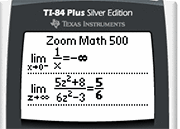

As in other UUIDs, 4 bits are used to indicate version 4, and 2 or 3 bits to indicate the variant (102 or 1102 for variants 1 and 2 respectively). Version 4 (random) A version 4 UUID is randomly generated.Remembers recently used random number generators. Create favorite random number generators. History of generated numbers for both the sequence and the loop. Speed loop that lets you control the speed of random generation. RFC 4122 recommends version 5 (SHA-1) over version 3 (MD5) and counsels against use of UUIDs of either version as security credentials. Features of this random number generator: Generate sequence using a loop. The specification provides UUIDs to represent the namespaces for URLs, fully qualified domain names, object identifiers, and X.500 distinguished names but any desired UUID may be used as a namespace designator. The namespace identifier is itself a UUID. Version 3 uses MD5 as the hashing algorithm, and version 5 uses SHA-1. Versions 3 and 5 (namespace name-based) Version-3 and version-5 UUIDs are generated by hashing a namespace identifier and name.

On non-POSIX systems, all local domain numbers are site-defined. On POSIX systems, local-domain numbers 0 and 1 are for user ids (UIDs) and group ids (GIDs) respectively, and other local-domain numbers are site-defined.
Zoom math 500 registration key generator mac#

The term globally unique identifier (GUID) is also used. A universally unique identifier (UUID) is a 128-bit number used to identify information in computer systems.


 0 kommentar(er)
0 kommentar(er)
